There are many uses for activated charcoal in a survival situation and in everyday life too. This handy black powder can alleviate stomach problems, treat poisoning, prevent hangovers, and even stop a spider’s venom from spreading and causing necrotic damage. In a pinch, you can even use it to make a survival water filter.
Activated charcoal absorbs toxins and purifies. Although you can buy activated charcoal at virtually any pharmacy or major online retailer, it’s a good idea to know how to make it from scratch.
Table of Contents
What is activated charcoal?

The process for making activated charcoal increases the surface area of the charcoal. This creates many microscopic pores that absorb toxins and filter out undesirable contaminants and flavors.
What can you use it for?
Treat poisoning

Even at hospitals, activated charcoal solutions are often one of the first lines of treatment for mild poisoning. Activated charcoal is good at absorbing alcohol. While you shouldn’t use charcoal so that you can drink more, it’s worth remembering that if you overindulge, taking a small amount of charcoal before bed or even while drinking can help prevent a hangover the next day.
Neutralize venom and toxins

Some of you may have heard of “black salve” or “drawing salve.” While this salve is useful for drawing out splinters and thorns, it is also very effective on insect bites and stings. Although a home remedy is not always the answer, a paste of coconut oil and powdered activated charcoal can be applied to spider bites and insect stings. People have even treated severe spider bites using this method. Although it might not be a complete cure, it can prevent venom from spreading and causing more necrotic tissue and infection. As charcoal is a bit messy, you’ll want to put apply an adhesive bandage or use gauze and tape to cover the bite or sting so it can drain but won’t stain clothes and bedding.
Filter water
Activated charcoal is what many standard kitchen water filters use. Brita water pitchers and filters use activated charcoal. Many emergency water filters have two layers of filtration, with the final filter being activated charcoal. While charcoal will not remove everything harmful, it will remove odors and flavors that can be present even if biological threats are not. That’s why it’s used in kitchens where the chlorine taste from city water systems is a concern.
Make a crude but usable gas mask for low-level threats
Note: This is not a replacement for a professional-grade mask, and it will not last for long.
Nothing you can make will replace a quality military-style gas mask like the MIRA CM-6; in an emergency, you can make a mask that offers at least some protection. For example, if you have a good pro-grade mask for yourself but want to help someone out in an emergency.
Reduce the burden on your kidneys
Your kidneys are part of your body’s filtration system. Charcoal removes toxins so your kidneys don’t have to work so hard. It can also help reduce phosphate levels in dialysis patients.

Consult With Survival Pros
For Those Serious About Their Family's Life-Assurance Plan (and Not Just Life Insurance)
Learn MoreAs a whitening toothpaste
Many people use activated charcoal to improve the color of their teeth. You can mix a little in with your regular toothpaste or make your own toothpaste with the following recipe:
Activated Charcoal Toothpaste
- 1 tsp activated charcoal
- 4 tbsp baking soda
- 4 tbsp coconut oil
Mix together and keep sealed. You can add a few drops of an essential oil if you want. I like peppermint essential oil for toothpaste because it is refreshing, inexpensive, and makes your homemade toothpaste seem more like what you typically buy. Plus, it covers up the flavors of the charcoal and baking soda a little bit.
Relieve gas, bloating, and other digestive problems
While more formal studies are needed, many people report that activated charcoal helps with some of their digestive issues. Like any medicine or remedy, the only way to find out if it helps you is to try it. Because it is safe for most people to use, it won’t hurt to try. My personal experience has been that it seems to help when I have an upset stomach.
As an ingredient in skincare products
When you learn how to make activated charcoal, you might want to try out some skin remedies. Many expensive skincare products use activated charcoal to purify and remove toxins. As someone who used to suffer from acne, I’ve found that products with charcoal in them seem to help a lot. I no longer get cystic acne breakouts.
Making activated charcoal can be messy and takes time.
A single pound of activated charcoal will last a very long time, even if you use it fairly regularly. At the moment, it’s easy to find, and at under $20 a bag, it’s not expensive. Sure, you can make your own for less, but the process and time it takes are enough that many people just buy it. However, it’s important to know how to make it so that you’ll be able to create a very valuable product if the supply chain in interrupted or getting activated charcoal delivered to your door is
How to make activated charcoal
You need:- Calcium chloride, also known as pickling lime. You can find it at practically any grocery store, or you can use pure lemon juice.
- Charcoal
- Large (quart or half-gallon) glass jar with lid
- Gloves
- Water
- Measuring cup
- Cheesecloth or an old white t-shirt for filtering
- Cookie sheets or disposable aluminum pans
- Storage containers for the finished product
The process:
- Powder your charcoal. You can put it in a plastic bag and hit it with a hammer. The bag won’t survive it but it gets the job done. A mortar and pestle could work but that can be a messy experience.
- Put charcoal in a stainless steel bowl or cooking vessel. Do not use aluminum because it will react with the calcium chloride solution that you add later.
- Put on gloves and mix 11/3 cups water with 3.5 oz of calcium chloride in a glass jar. Seal the jar with a tight fitting lid and shake well. The jar will get very hot.
- Add the calcium chloride solution to the powdered charcoal and mix until it makes a paste. If you are short on solution, make another batch and keep adding it until it makes a paste.
- Set the bowl aside for a full day (more than 24 hours is okay).
- Dump the contents of the bowl onto several layers of cheesecloth. You may want to set up some sort of stand as you will be running water over the charcoal. Set up a bucket or stainless steel container to catch the water. The water can then be filtered through a coffee filter to retrieve any lost charcoal, if desired. You can use clean white cotton sheets or shirts as long as they have not been washed with anything smelly or dried with dryer sheets. Be careful about this, as you could ruin your project.
- Spread the washed charcoal on cookie sheets or trays and bake at 250°F until it’s completely dry. Time will vary based on the amount and your oven. A few large cookie sheets could take 35 minutes or longer.
- Your charcoal is now activated! After it cools down, you can bust it up and store it indefinitely.
Choosing charcoal
Make sure to buy hardwood charcoal that has not had any additional fluids or treatments added. Just plain hardwood charcoal is the way to go. For those who want to start completely from scratch, next I explain how to make charcoal using hardwood that you have purchased or cut. The process is time-consuming, but it’s good to know for real SHTF situations, when you can’t just pick up a bag of charcoal at the grocery store.
How to make charcoal

- Dry hardwood, cut into kindling-size sticks. Oak and Hickory are preferable due to their density and quality, but you can use any hardwood.
- Metal barrel or a metal container that you can place wood in
- Wood to burn around your barrel
Place the kindling into the barrel. Build a large fire around the barrel and keep it going for 3–5 hours, depending on the size of your barrel. A 55-gallon metal drum with a lot of wood in it would need at least 5 hours to create charcoal. As you can see, this means burning a lot of wood around your barrel, which requires keeping the fire fed. However, you can make a lot of charcoal at once and use it for fire starters or to make activated charcoal.
Important things to be aware of about activated charcoal
- Activated charcoal can prevent vitamins and medications from being absorbed, reducing or eliminating their effectiveness. If you take charcoal, do not take any medications for at least 2 hours afterward.
- Milk and dairy can prevent activated charcoal from working because they coat the stomach. Mix charcoal with juice or a drink mix to make it more palatable. This is why some people just use capsules. Charcoal does not taste good at all!
- Always take activated charcoal with a full 8 ounces of liquid. If you are administering a large amount to someone, you may need more liquid to mix it properly.
- Never give activated charcoal to a child under the age of one.
- Activated charcoal does not treat all types of poisoning, such as acid or chemical poisoning.
- For charcoal to be effective, it should be given as soon as possible after poisoning is suspected. If it is given more than an hour afterward, it will not be effective.

Exclusive Survival Gear Deals
Access survival equipment we’ve fully tested so we can recommend it to you.
Dosage for supplemental use and poisonings
Some people take a few capsules or a spoonful of activated charcoal every day as a health supplement. However, you should avoid taking a large dose every day because of the risk of blocking the absorption of vitamins and minerals. When I take activated charcoal regularly, I usually take a day off from it every three days.
Here are the dosage guidelines if you suspect someone has ingested poison, too much alcohol, or drugs.
For a single dose, mix ¼ to ½ gram per pound of bodyweight for adults or children over one year. This measurement converts to 2.5 to 5 grams per 100 lbs. When in doubt, go with the higher dose. Mix with juice or water.
If major poisoning is suspected, give 50 grams of activated charcoal to a child and 100 grams to an adult. Follow up with 25 grams every 2 hours.
Keep the number for Poison Control (1-800-222-1222 in the US) handy, and call Poison Control first in the event of a known or suspected poisoning. They provide excellent advice and guidance. Although activated charcoal can help, you should seek medical attention as soon as possible. Activated charcoal starts the detoxification process and prevents some damage, buying time for you to seek medical attention.
Making activated charcoal capsules
You pay a significant premium for activated charcoal capsules. A capsule machine, small filling spoon, and capsules cost very little, and you can use them to make your own compounded supplements. Making capsules is a great way to save money if you take multiple herbal supplements. Many apothecaries sell bulk powders. You can make 100 capsules at a time with many basic capsule setups. Be sure that you match the capsule size you buy with the size your capsule machine will accommodate.
You can buy activated charcoal powder on Amazon and start making capsules at home in no time, and you won’t have a ton of annoying pill bottles lying around. We take a few supplements in our house, and throwing a bottle away every 60−90 capsules gets annoying. They don’t fill them as much as they could either, so a lot of space is wasted in your medicine cabinet.
Types of activated charcoal
Commercial activated charcoal is often made from coconut shells or bamboo. Since this is an inexpensive byproduct in some areas of the world, it’s no surprise that people have found a way to capitalize on it. If you live in an area where you can get a lot of bamboo, then, by all means, use it for charcoal. It grows like crazy in some places. People often have it cut down because it has been planted and allowed to get out of control. This is quite common in the southern US. Some claim that activated charcoal made from hardwoods is better at absorbing toxins, but there is no evidence that this is the case.
Here are a few examples of activated charcoal that you can buy right now if you decide that making it is not for you.
Zen Charcoal 2.5 lb. bag

This charcoal is made from 100% American hardwoods. It has excellent reviews from a large customer base. I like that the bag is easy to reseal because charcoal can be messy.
Belle Chemical 2 lb. bag

If you’re used to charcoal made from coconut, this brand is a reasonably priced option for making your own capsules and other products.
Faq
While you can technically take activated charcoal daily, there are some factors to consider. For example you should not take charcoal within 2 hours of taking other medications or multivitamins since it can cause them to not absorb properly. Of course taking too much could cause stomach or digestive issues just like with any other supplement. If you take other medications you should discuss with your doctor how much activated charcoal is safe to take and how you should space out doses.
Regular charcoal that you buy in the store does not have the absorbent qualities of activated charcoal. Without the activation process, the surface area of the molecules cannot trap toxins sufficiently.
No. Activated charcoal will last forever if kept in a water tight container. If some water does come into contact with activated charcoal, you can dry it out and it will still be good. If any other liquid comes into contact with your activated charcoal, you should replace it.
Conclusion
Activated charcoal is an excellent product to keep on hand for survival and SHTF situations. It’s inexpensive and can be used for many things. Making your own is time-consuming and messy, but it would be worth it during a survival situation. In the meantime, it’s more practical for most to spend $25 or less and purchase a bag of charcoal that has already been activated.
Activated charcoal stands out because it is generally safe as long as dosage guidelines are followed and it’s not consumed at the same time as other medications.


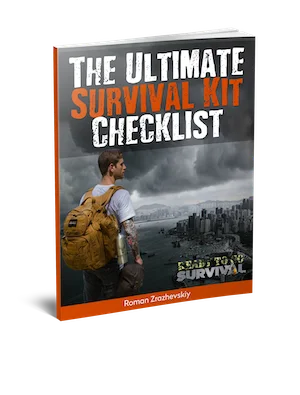












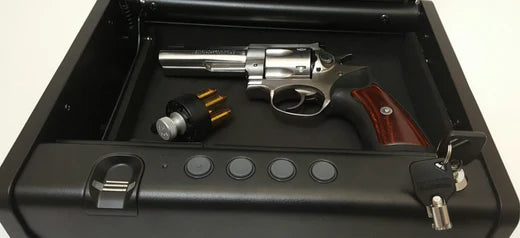


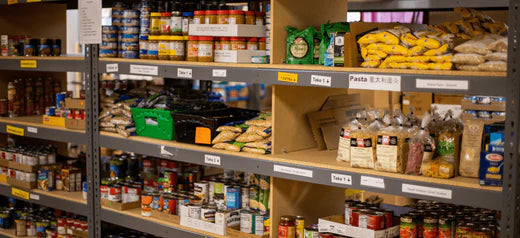

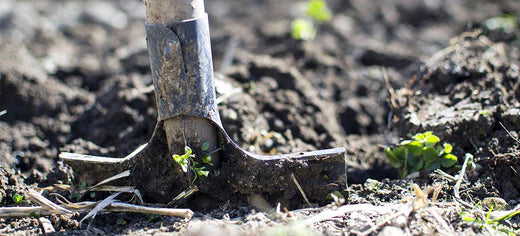


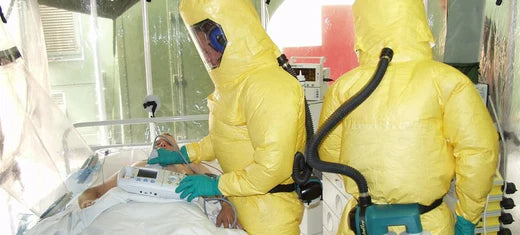

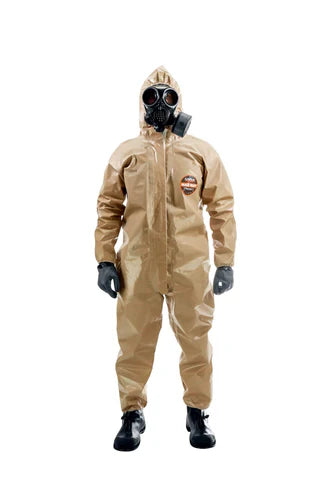
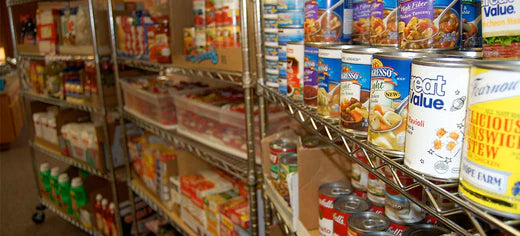




Leave a comment